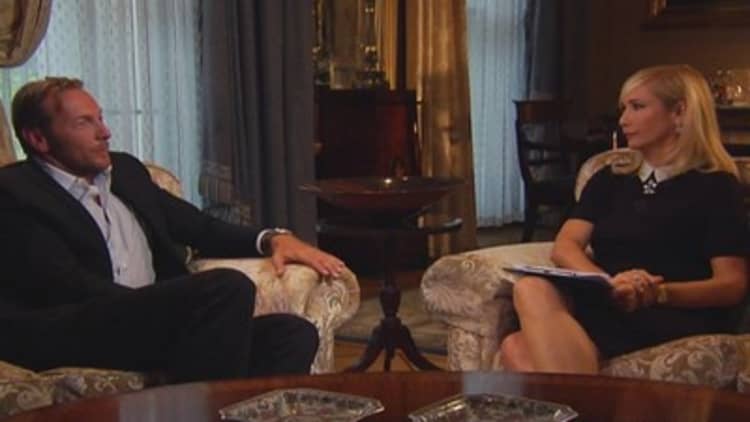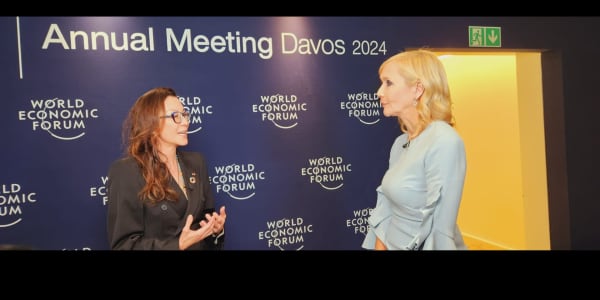
While Puma's recent decision to continue sponsoring Usain Bolt seemed like a no-brainer, the story was somewhat different a decade ago.
Nowadays, Bolt is widely regarded as the fastest sprinter ever, having won both the 100m and 200m races at the last two Olympic Games. In both years he was also part of the winning team in the 4x100m relay. Plus, he holds eight World Championship gold medals.
However, Jochen Zeitz, then CEO of Puma, told CNBC Meets that he considered dropping the Jamaican athlete after he failed to shine at the 2004 Olympics in Athens and was criticized for his unprofessional approach.
"We said, 'Well, he's a young guy, but he doesn't really want to train as a hard as he should. He has all the potential but he does get injured. If he doesn't practice he's never going to be great,'" Zeitz said.
Zeitz had a meeting with his team at Puma and they decided it was time to release Bolt, who had joined the brand in 2002. However, the decision did not sit well with Zeitz, who reversed it soon afterwards.
"It was only a couple of weeks later that I said, 'Well, I don't think that's a good idea. Let's just stick with him. I'm sure he can pull it off,'" he told CNBC. "'He's great. He has a great personality. He's a great guy and if he gets a good coach he can do miracles, and let's just stand by him and support him in these difficult times.'"
Shortly afterwards, Bolt was working with new coach Glen Mills, who has since been credited with helping Bolt become a world champion.
"I would have certainly bitten myself if we had continued to actually let him go, so (I am) very thankful for that spark of inspiration," Zeitz said.
Last week, Bolt announced he was renewing his sponsorship deal with Puma until after the 2016 Olympics Games in Rio de Janeiro. Puma is said to be paying Bolt $10 million a year, making the deal the biggest in athletics.
Regarding Bolt's turnaround, Zeitz said: "I think he doesn't like losing and ultimately he realised that he needed to pull himself together. He enjoyed life, he enjoyed his early fame, but he realised that if he didn't really start working hard, he wouldn't have the career that he wanted to have."
Bolt as an investment
Repucom, one of the largest sports marketing research companies, said that sticking with Bolt was a risk that paid-off for Puma.
"For someone like Puma, who is going to be making investments in a whole bunch of talent over time, you're always taking a bit of a punt," said Repucom Managing Director Charlie Dundas.
"You never know if you're going to get the next Usain Bolt or a guy that none of us have ever heard of, who damaged his anterior cruciate ligament aged 21 and never made it on beyond that time. You're always taking risks."
Dundas said that with rivals Nike and Adidas dominating U.S. sports markets like baseball and basketball, sponsoring Bolt offered an opportunity for Puma to monopolize the more niche market of athletics, with an individual who transcended his sport.
"There is an argument that he could a bit of a David Beckham," Dundas said. "He's got a personality that exceeds simply his ability on the track. They (Puma) have committed a huge sum of money to him becoming an ambassador. (Former sprinter) Michael Johnson has had a pretty good post-athletics career, through being a great pundit."
CNBC Meets: Jochen Zeitz will air on Wednesday 16 October.
—By CNBC's Kiran Moodley. Follow him on Twitter @kirancmoodley





